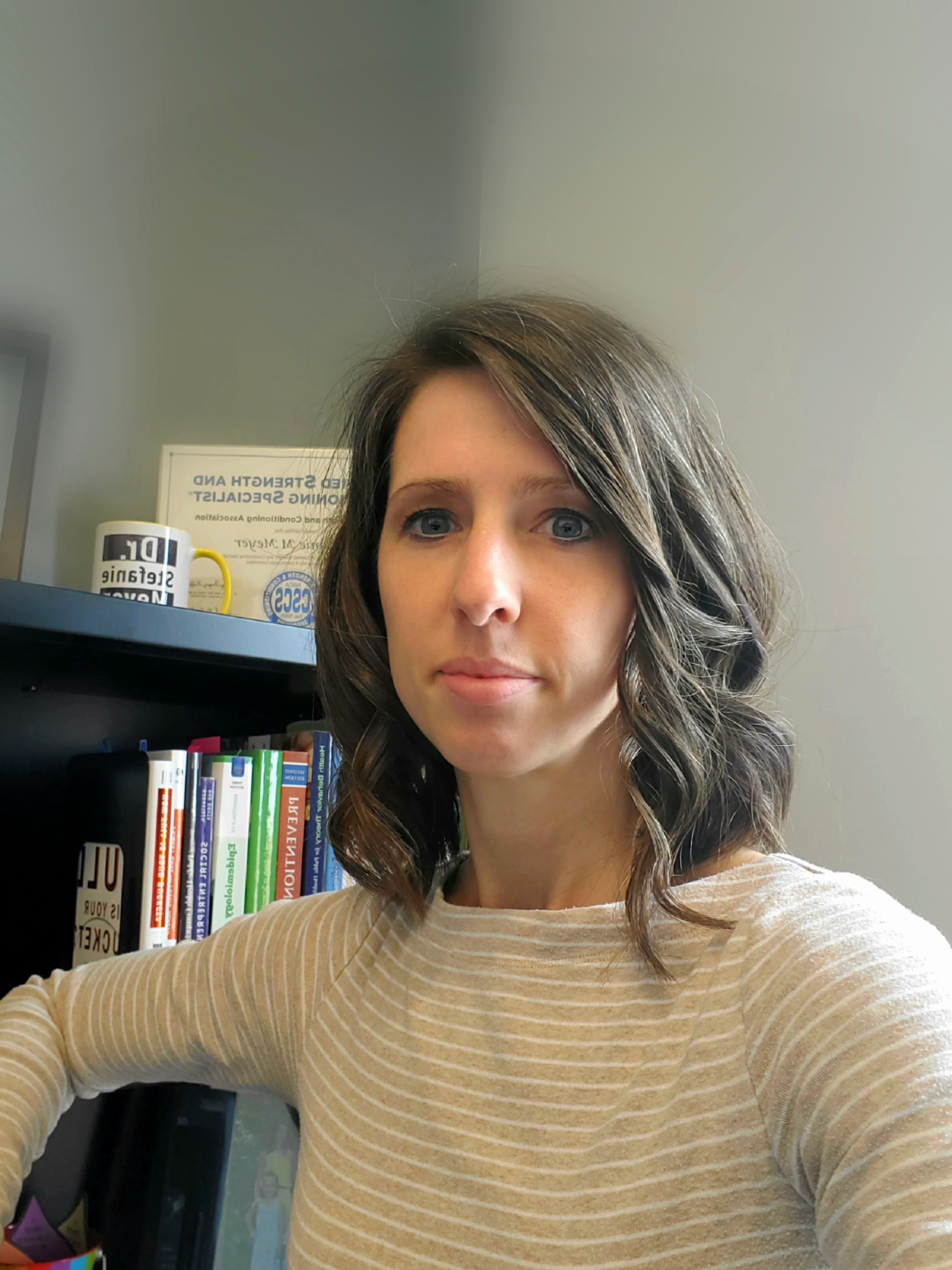Challey Spotlight: Dr. Stefanie Meyer
Assistant Professor of Practice in Public Health
Director of Accreditation for NDSU Public Health
Stefanie Meyer is a fellow at the Challey Institute for Global Innovation and Growth and an assistant professor of practice in public health at North Dakota State University. She also serves as the director of accreditation for NDSU Public Health. Her work as a faculty fellow involves institutional practices and policies as well as social entrepreneurship around the topic of chronic disease prevention. Her work serves to balance the private and social sector approaches to institutional policies, practices, and norms to positively influence human flourishing. She has published in the areas of college student health, healthcare and physical activity, and local decision-making implications on health. As a school board member, scholar, and service-oriented leader, her work is practical application of science. In 2022, she received the College of Health Professions Dean’s Award for Exemplary Service.
Research and outreach highlights:
- Physical Distancing ≠ Physical Inactivity
- Local Decision-Makers and Keeping Kids Active During the Pandemic
- Kids and the Coronavirus: Unintended Consequences Two Years Later
We know COVID-19 has been and continues to be an important topic in public health. You have studied and written about the unintended consequences of the lockdowns on people’s physical activity, especially obesity rates in children. What have you discovered so far?
That’s a great question. Anecdotally, local pediatricians have said they saw kids come in with high weight gains in the six months and beyond since COVID-19 shutdowns started. That made me interested in kids’ obesity levels and how they varied across the health system based on zip code, because we know school closures and shutdown approaches varied by school district. So, we are looking into that. But nationally we have seen, unfortunately, that kids gained a significant amount of more weight than they normally would have without the shutdown from the pandemic. And why we care so much is because we know that if a child is overweight or obese at age five, it is very difficult for them to change that trajectory into adulthood, which brings a number of other whole-child health challenges such as weight stigma, weight bias, and risk of chronic diseases like diabetes.
Speaking of chronic diseases, you are an advocate for the use of lifestyle approaches to treat chronic illness. What are lifestyle approaches, and how can they be used to improve the future of medicine?
The American College of Lifestyle Medicine defines six pillars of their lifestyle approach: physical activity, whole food plant-based diets, getting adequate sleep, avoiding substances like tobacco and alcohol, reducing your stress, and having positive social connections. We know these measures are actually safer and more effective than medications in treating, for example, diabetes and hypertension. So, what I’m hoping to do in the College of Health Professions is train the next generation of pharmacists, nurses, and public health workers with the skills and knowledge to be able to talk to patients about these pillars as a first-line of defense in preventing but also treating and even reversing these chronic conditions.
As an advisor, you have worked with students on developing an entrepreneurial mindset and thinking about “intrapreneurship” and “systems-thinking.” What is the value of these ideas?
Intrapreneurship is the idea of being a driver of change within an institution. You know, our students in public health aren’t all going to go out and build a startup company, but we want them to think about being a driver of positive, social change within an institution and making it better. I’m very interested in connecting things and working better together, which means being interdisciplinary. It’s an incredibly difficult thing to do because people usually don’t take the time to understand someone else’s frame of reference, and they often can dismiss it as “I’m right; you’re wrong” instead of developing a mutual understanding or appreciation.
Note: Dr. Meyer will travel to Oxford University this summer with a group of students competing in the global entrepreneurship competition Map the System. Read about their winning project here.
The Challey Institute seeks to be an interdisciplinary hub at NDSU, working with faculty across campus. What excites you about being part of the Challey Institute?
Specifically with the Challey Institute, I really get excited about the focus on human flourishing. I navigate toward the healthy human experience piece, and it’s interesting connecting that with the other disciplines. For example, if a person is healthy, they are a more fully functioning citizen, which can impact economics and financial stability or the community health we have around us. In the health profession disciplines, we want to solve problems and lower the cost of healthcare, but we haven’t been able to do it. And so, I believe we have to start doing things differently, and that means finding different unique partners and having conversations with other disciplines.
How does philanthropy like the Challey Institute fellowship support your work as a faculty member?
I am thankful for donors who give back and start initiatives like the Challey Institute. As faculty, our time is spread across many commitments—research, teaching, service—and those buckets fill up very fast. Something like the Challey Institute fellowship program allows us the time and energy and resources to devote a piece toward interdisciplinary work that might not normally fit within our current role. That’s how I’ve been able to benefit and really appreciate the donors from the Challey Institute.



